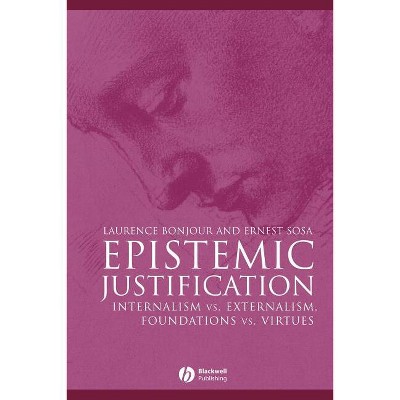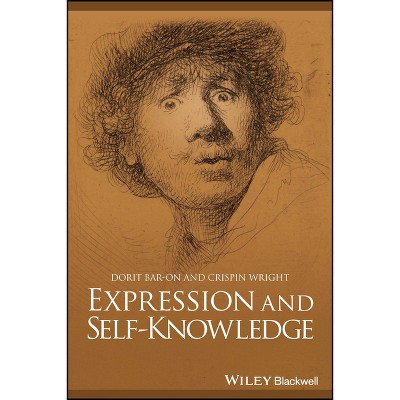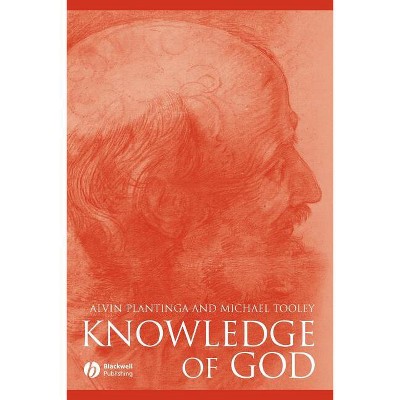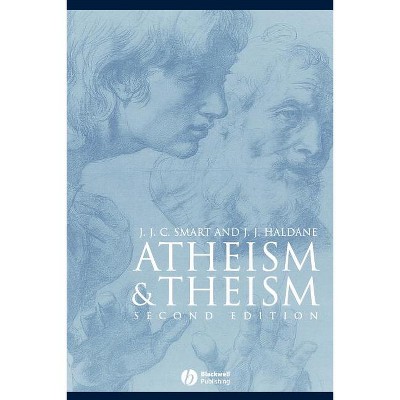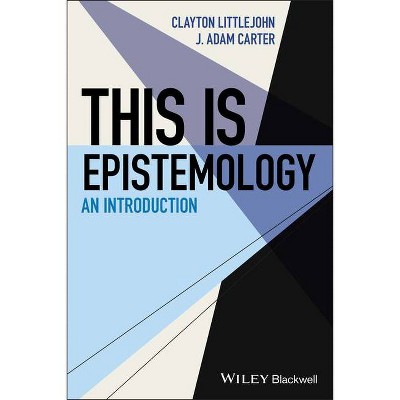Contemporary Debates in Epistemology - (Contemporary Debates in Philosophy) 3rd Edition by Blake Roeber & Ernest Sosa & Matthias Steup & John Turri

About this item
Highlights
- The perfect introduction to contemporary epistemology, completely overhauled for its third edition In Contemporary Debates in Epistemology, pairs of specially commissioned essays defend opposing views on some of today's most compelling epistemological issues and problems.
- About the Author: The Editors BLAKE ROEBER is Thomas J. and Robert T. Rolfs Associate Professor of Philosophy at the University of Notre Dame.
- 384 Pages
- Philosophy, Epistemology
- Series Name: Contemporary Debates in Philosophy
Description
About the Book
"Traditional theories of knowledge explain knowledge in terms of things like justification and belief. Knowledge-first theories of justification and belief explain justification and belief in terms of knowledge. When epistemologists ask whether knowledge "comes first," they are asking whether traditional theories of knowledge take the right approach, or whether knowledge-first theories of things like justification and belief take the right approach. In her contribution to this debate, Mona Simion defends knowledge-first epistemology by defending a knowledge-first theory of belief and using this theory of belief to motivate a knowledge-first theory of justification. In his contribution to this debate, Aidan McGlynn defends traditional epistemology by critiquing Simion's knowledge-first theory of belief. As Simion and McGlynn both recognize, Simion's argument depends on the idea that beliefs that do not amount to knowledge are epistemically defective. While Simion thinks this is plausible, McGlynn thinks we can produce examples of epistemically non-defective beliefs that do not amount to knowledge. As McGlynn acknowledges, his contribution to the debate does not provide a traditional theory of knowledge in place of Simion's knowledge-first theories of justification and belief. However, if McGlynn is right that we can produce examples of epistemically non-defective beliefs that do not amount to knowledge, this casts doubt on at least one central idea in knowledge-first epistemology: that knowledge has explanatory priority over belief"--Book Synopsis
The perfect introduction to contemporary epistemology, completely overhauled for its third edition
In Contemporary Debates in Epistemology, pairs of specially commissioned essays defend opposing views on some of today's most compelling epistemological issues and problems. Offering a unique blend of accessibility and originality, this timely volume brings together fresh debates on hotly contested issues to provide readers with the opportunity to engage in comparative analysis of constantly changing and developing epistemological concepts.
Now in its third edition, Contemporary Debates in Epistemology features up-to-date coverage of the latest developments in the field. Entirely new essays examine questions of epistemic normativity and knowledge, the relationship between belief and credence, the possibility of internalist epistemology, epistemic instrumentalism, norms of assertion, the use of thought experiments in epistemology, and more.
- Presents a rigorous yet accessible introduction to the major topics in contemporary epistemology
- Contains head-to-head chapters offering forceful advocacy of opposing philosophical stances
- Focuses on core areas of epistemology
- Uses a lively debate format that sharply defines the issues and encourages further discussion
- All-new chapters provide fully updated coverage of new and emerging topics in epistemology
Part of the Wiley-Blackwell Contemporary Debates in Philosophy series, Contemporary Debates in Epistemology, Third Edition, remains an essential resource for advanced undergraduate philosophy majors, graduate students in philosophy, and epistemologists who want to keep current with contemporary epistemological debates.
From the Back Cover
Contemporary Debates in Epistemology is the perfect introduction to contemporary epistemology for advanced undergraduates, graduate students, and non-specialists in epistemology. Blending accessibility and originality, this acclaimed volume contains head-to-head chapters offering forceful advocacy of opposing philosophical stances. Throughout the text, readers develop a clear understanding of the current state of epistemology as they engage in comparative analysis of constantly changing and developing epistemological concepts.
A timely introduction to the major topics in contemporary epistemology, this new edition integrates the latest developments in the field. Entirely new essays defend divergent perspectives on topics such as epistemic normativity, belief and credence, internalist epistemology, epistemic instrumentalism, norms of assertion, and more. Two original chapters guide readers on the use of thought experiments in epistemology and offer best practices for students and researchers alike.
With a lively debate format that sharply defines the issues and encourages further discussion, Contemporary Debates in Epistemology, Third Edition, remains an essential resource for advanced undergraduate philosophy majors, graduate students in philosophy, professors who are not specialists in epistemology, and epistemologists who want to keep up to date with contemporary epistemological debates.
About the Author
The Editors
BLAKE ROEBER is Thomas J. and Robert T. Rolfs Associate Professor of Philosophy at the University of Notre Dame. He is Associate Editor of Philosophical Studies and has published in Nous, PPR, Mind, and other leading journals.
ERNEST SOSA is Board of Governors Professor of Philosophy at Rutgers University. He is the author of numerous papers and books on epistemology and is the editor of Nous, Philosophical Issues, and Philosophy and Phenomenological Research.
MATTHIAS STEUP is Professor of Philosophy at the University of Colorado, Boulder. He is the author of An Introduction to Contemporary Epistemology and numerous articles on epistemology. He is the editor of Knowledge, Truth, and Duty and the co-editor of A Companion to Epistemology.
JOHN TURRI is Professor and Canada Research Chair in Philosophy and Cognitive Science at the University of Waterloo, where he directs the Philosophical Science Lab. He has published research in many leading philosophy, psychology, and cognitive science journals.






